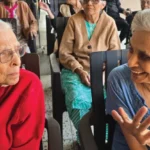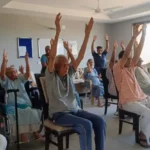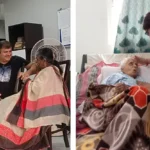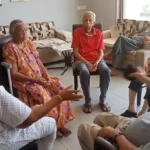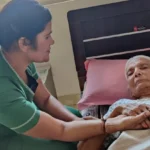The onset of winters brings another challenge for caretakers who have elder people around. You might be looking after your parents or grandparents for years, but every winter, you must be extra cautious in ensuring the well-being of an elder person.
Senior health care is a segment that should not be taken as a joke. As the body ages, its power to fight extreme weather condition weakens, mostly because of lower immunity levels. So, every step one takes towards care, especially during the winters should be backed by scientific reasoning. To keep an elderly person comfortable, safe and healthy throughout the winters, here are some winter-specific elderly care tips:
Make indoors as cozy and warm as possible to avoid hypothermia
Hypothermia is a fatal medical condition that arises when the body temperature falls below 95-degree Fahrenheit. For the elderly, it becomes really hard to cope up with the winter season and every year hundreds of cases of hypothermia get registered. To make sure that an elder person stays away from this deadly condition, it is important to regulate the temperature inside the house. Here are some things you can do to protect someone from hypothermia:
- Make sure that windows and doors are properly closed and sealed during chilling winter months
- If the temperature dips sharply, arrange for electric room heaters
- Adequately dress up an elderly person using warm woolens, socks, sweaters, overcoats
- Cover up a senior citizen with extra blankets in the night and even during the day, cover the legs with a blanket if one wishes to sit for long hours
- Develop a routine for some mild physical activity to keep the body warm
Properly cover the body during outdoor excursions to prevent low body temperature
One of the main reason seniors get ill during the winters is that they do not get properly dressed for the season. Instead of leaving the decision to themselves, you should make sure to dress them up when they are planning to leave indoors. Most often, they cannot ascertain the outside weather properly increasing the chances of catching cold or fever. To avoid such a situation, follow the below-mentioned tips:
- Adopt layered dressing ideas to properly dress up. Make sure that the clothing should not be too tight as it can lead to suffocation and blood circulation problem
- When raining or in case of high humidity, convince the elder to wear water repelling clothing like a raincoat
- Create a wardrobe of scarves, hats and woolen caps and always cover the head as the head is where maximum heat loss occurs
Protect the elder from cases of carbon monoxide poisoning
A lot of families are used to lighting fireplaces or using an indoor fire source to warm up the place. As a person involved in elderly care, you should be extra careful in such cases. Inadequate ventilation and unclean fuels can leak out dangerous levels of carbon monoxide indoors. Exposure to carbon monoxide can lead to a headache, dizziness, nausea or vomiting and loss of consciousness, which can be fatal during the old age. If the place must be warmed up using the indoor fireplace, make sure to follow the below-mentioned tips:
- Always keep a small crack in window open while using an indoor stove or fireplace
- Install smoke and carbon monoxide detectors inside homes
- Make sure that the heaters are placed away at a safe distance where nothing can catch fire
In case an elder shows symptoms of carbon monoxide poisoning, expose him/her to fresh air and immediately contact medical help.
During the old age, it becomes really hard for a person to survive on his own, let alone the challenges because of winter. Hence, many families have realized the benefits of assisted living and personal care services for seniors. With demanding careers, it becomes hard to take care of elders round the clock, hence choosing a service provider that is trained in providing adequate senior care is required.
Papaya Care is a renowned senior care and assisted living facility where seniors can stay comfortable throughout the winters in the supervision of trained experts who are equipped to handle any challenges associated with health and changing the weather.






